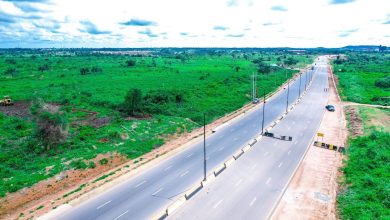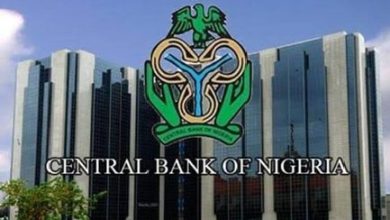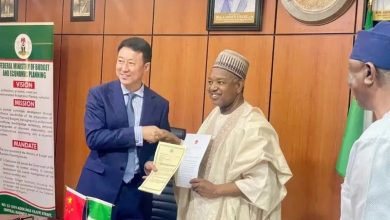Dangote Refinery Bypasses Middlemen, Begins Direct Fuel Distribution to Major Users
Dangote Refinery will start supplying petrol and diesel directly to major industries.
The new model removes middlemen, offers free logistics, and aims to cut fuel distribution costs.
SEE ALSO: NARTO Shutdown at Dangote Refinery Triggers Fuel Supply Fears
The Dangote Petroleum Refinery has announced a major shift in its fuel distribution strategy, revealing that it will begin supplying petrol and diesel directly to large-scale users across various industries, including manufacturing, telecommunications, aviation, and others.
This new development, made public via the refinery’s official X account on Sunday, marks a significant move away from traditional fuel marketing channels. Instead of relying on petroleum marketers to distribute its products, Dangote Refinery will now handle direct delivery to end users. The new distribution model is scheduled to officially begin on August 15, 2025.
According to the refinery, logistics costs will be entirely covered as part of the initiative. This is expected to ease the burden of transportation for buyers and boost the overall efficiency of fuel distribution across Nigeria.
In a detailed statement, the refinery noted, “Dangote Petroleum Refinery is proud to introduce a groundbreaking national initiative that will transform how fuel is distributed throughout Nigeria. Starting from August 15, 2025, we will begin supplying petrol and diesel directly to licensed fuel marketers, filling stations, manufacturers, telecom operators, aviation companies, and other high-volume users. We will also offer free logistics support to strengthen the delivery network.”
To support this rollout, the refinery has already acquired 4,000 brand-new tankers powered by compressed natural gas (CNG). These eco-friendly vehicles are expected to play a crucial role in the nationwide delivery of petroleum products. Additionally, the refinery is investing in the development of CNG filling facilities, commonly called daughter booster stations, which will be backed by over 100 additional CNG tankers to ensure seamless nationwide coverage.
This strategy aligns with Dangote Refinery’s broader goals of improving energy distribution, supporting Nigeria’s economic growth, and encouraging sustainable practices. The company emphasized that the plan would also reduce the overall cost of fuel, particularly for critical sectors like manufacturing and aviation. This in turn could help lower production expenses, ease inflation, and contribute to overall economic stability.
“All retail outlets and sectors purchasing products directly from the Dangote Refinery will benefit from the streamlined logistics process,” the statement continued. “We are offering credit facilities as well, allowing buyers who purchase at least 500,000 liters to receive an equal amount on credit for up to two weeks, provided a bank guarantee is issued.”
This credit arrangement is expected to make it easier for major fuel users to manage their operations without the immediate strain of upfront payments. It also reflects the company’s desire to support businesses through more flexible financing options.
The refinery’s management believes that this move will breathe new life into many filling stations that have been out of operation due to high logistics costs and fuel scarcity. It could also generate employment, help small and medium-sized businesses grow, and increase government tax revenues.
The initiative is in alignment with President Bola Ahmed Tinubu’s Renewed Hope Agenda, which aims to improve the country’s economic resilience and support inclusive development. Dangote Refinery praised the government’s backing, especially its “naira-for-crude” policy, which has played a key role in stabilizing domestic fuel availability despite fluctuating global oil prices.
“We are deeply grateful to the Federal Government for its continued support. This step represents a turning point in Nigeria’s fuel supply chain and showcases the impact of forward-thinking economic reforms under President Tinubu’s administration,” the statement concluded.
Before this new policy, products such as petrol and diesel were lifted from the Dangote Refinery by petroleum marketers and distributed to retailers and other consumers. Firms like MRS, AP Ardova, and Optima had acted as intermediaries in getting fuel from the refinery to the final users.
Now, with the refinery taking over the distribution process, the middlemen are being phased out in favor of a more direct, efficient, and potentially more affordable system.



